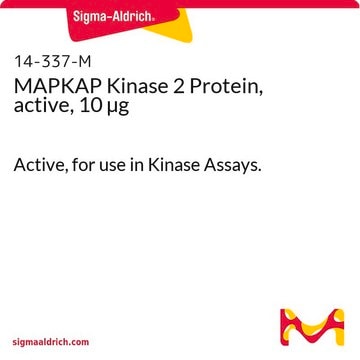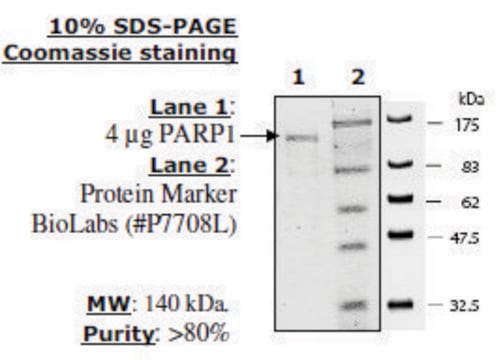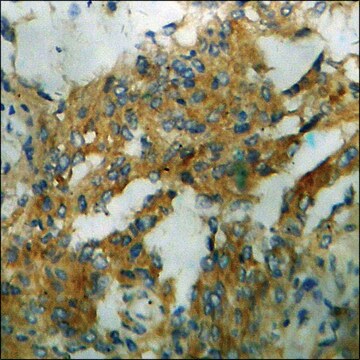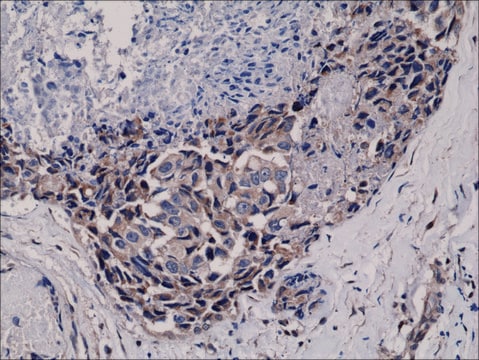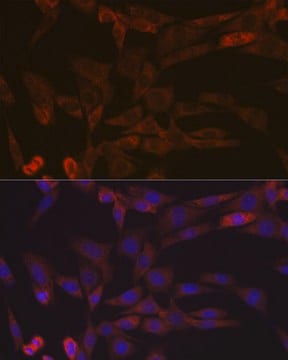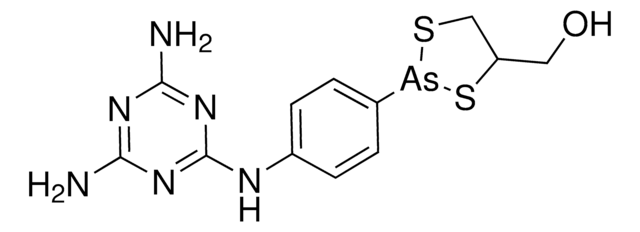M0195
MAPKAPK2 human
recombinant, expressed in HEK 293 cells, ≥60 units/mg protein, buffered aqueous glycerol solution
Synonym(s):
MAP kinase activated protein kinase 2, MAPKAP Kinase 2 human
Sign Into View Organizational & Contract Pricing
All Photos(1)
About This Item
Recommended Products
recombinant
expressed in HEK 293 cells
Quality Level
form
buffered aqueous glycerol solution
specific activity
≥60 units/mg protein
mol wt
45-60 kDa
UniProt accession no.
shipped in
dry ice
storage temp.
−70°C
Gene Information
human ... MAPKAPK2(9261)
Biochem/physiol Actions
MAPKAPK2 is a serine/threonine protein kinase activated by the p38 MAP kinase in response to various signals including mitogenic and stress stimuli. MAPKAPK2 is distinguished from the RSK family of ribosomal protein S6 kinases (also termed MAPKAPK1), which are activated by the MAP kinases, ERK1, and ERK2 based on its substrate specificity and amino acid sequence. Upon activation, p38 MAP kinase activates the downstream MAPKAPK2 by phosphorylation of the threonine residue in the Pro-Thr motif in response to heat shock or mitogenic stimuli. Activated MAPKAPK2 phosphorylates the small heat shock protein HSP25/HSP27, both in vitro and in vivo, at serine residues. Thus, HSP25/HSP27 seems to be the physiological substrate of MAPKAPK2.
Unit Definition
One unit will incorporate 1.0 nmole of phosphate into HSP 25 per minute at 30 °C at pH 7.4.
Physical form
Solution in 50 mM Tris-HCl, pH 7.4, 100 mM NaCl, 0.05 mM EDTA, 2 mM DTT, and 10% glycerol.
Storage Class Code
10 - Combustible liquids
WGK
WGK 1
Flash Point(F)
Not applicable
Flash Point(C)
Not applicable
Choose from one of the most recent versions:
Certificates of Analysis (COA)
Lot/Batch Number
Don't see the Right Version?
If you require a particular version, you can look up a specific certificate by the Lot or Batch number.
Already Own This Product?
Find documentation for the products that you have recently purchased in the Document Library.
Sung-Jen Wei et al.
Cell death & disease, 11(5), 368-368 (2020-05-16)
Despite the improvement in clinical outcome with 13-cis-retinoic acid (13-cisRA) + anti-GD2 antibody + cytokine immunotherapy given in first response ~40% of high-risk neuroblastoma patients die of recurrent disease. MYCN genomic amplification is a biomarker of aggressive tumors in the
Our team of scientists has experience in all areas of research including Life Science, Material Science, Chemical Synthesis, Chromatography, Analytical and many others.
Contact Technical Service